Upholstery Cleaning in Home Cleaning
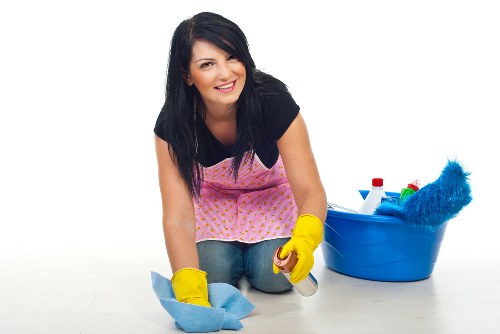
Upholstery cleaning plays a crucial role in maintaining the overall cleanliness and longevity of your home furnishings. From sofas and chairs to curtains and carpets, regular cleaning not only enhances the aesthetic appeal of your living spaces but also promotes a healthier environment for you and your family.
Over time, upholstery can accumulate dust, dirt, allergens, and stains, which not only detract from the appearance of your furniture but can also pose health risks. Effective upholstery cleaning helps to remove these unwanted elements, ensuring that your home remains a comfortable and inviting place.
In this comprehensive guide, we will explore the various aspects of upholstery cleaning, including its benefits, methods, and tips for maintaining pristine home furnishings.
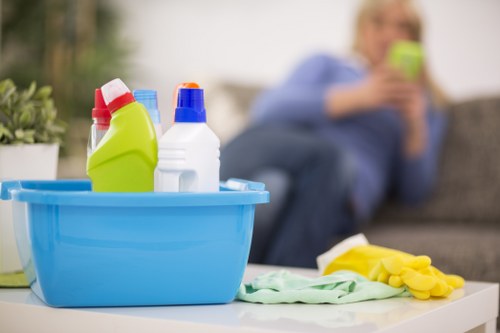
Why Upholstery Cleaning is Essential
Upholstery cleaning is more than just a cosmetic enhancement for your home. It serves several important purposes that contribute to the overall well-being of your household.
Health Benefits
Regular cleaning of your upholstery can significantly reduce the presence of allergens such as dust mites, pet dander, and pollen. These allergens can aggravate respiratory conditions like asthma and allergies, making it essential to maintain a clean environment.
Additionally, removing stains and spills promptly prevents the growth of mold and mildew, which thrive in damp conditions and can lead to unpleasant odors and potential health hazards.
By ensuring that your upholstery is free from contaminants, you create a safer and healthier living space for everyone in your home.
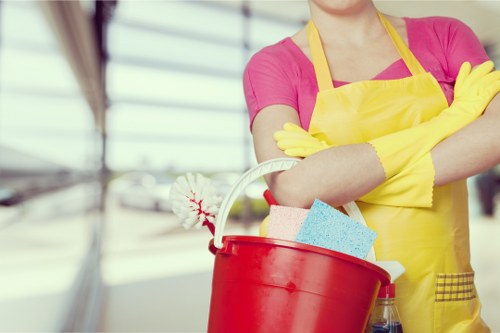
Types of Upholstery Fabrics
Understanding the type of fabric your upholstery is made from is crucial for selecting the appropriate cleaning method. Different materials have varying cleaning requirements to prevent damage and ensure effective results.
Cotton and Linen
Cotton and linen are natural fibers known for their durability and breathability. These fabrics are generally easier to clean and can withstand moderate water exposure.
Cleaning Tips
- Use mild detergent and lukewarm water.
- Avoid excessive scrubbing to prevent fabric wear.
- Ensure thorough drying to prevent mildew growth.
Synthetic Fabrics
Synthetic materials like polyester and nylon are popular due to their resistance to stains and fading. These fabrics often require specialized cleaning solutions to maintain their appearance and texture.
Cleaning Tips
- Choose a cleaning solution specifically designed for synthetic fabrics.
- Perform a spot test in an inconspicuous area before full cleaning.
- Use gentle cleaning techniques to preserve fabric integrity.
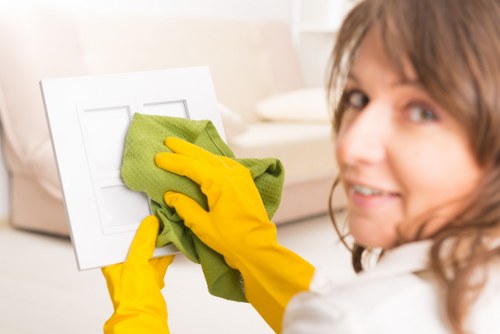
Upholstery Cleaning Methods
There are several methods available for cleaning upholstery, each with its own advantages and suitability depending on the fabric type and the nature of the stains.
Steam Cleaning
Steam cleaning uses high-temperature steam to penetrate the fabric, effectively removing dirt and killing bacteria. It is suitable for a wide range of fabrics and is known for its deep-cleaning capabilities.
Advantages
- Deep cleans and sanitizes upholstery.
- Effective against tough stains and allergens.
- Environmentally friendly with minimal chemical use.
Dry Cleaning
Dry cleaning involves the use of chemical solvents to clean upholstery without the need for water. This method is ideal for delicate fabrics that may be damaged by moisture.
Advantages
- Prevents water-related fabric damage.
- Quick drying time.
- Preserves fabric color and texture.
Choosing the right cleaning method ensures that your upholstery remains in excellent condition and extends its lifespan.
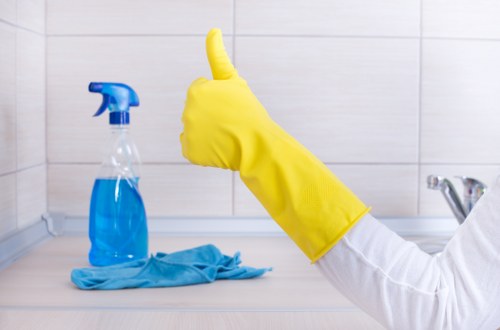
DIY Upholstery Cleaning Tips
While professional upholstery cleaning services offer the best results, there are several DIY methods you can employ to maintain your furniture between professional cleanings.
Regular Vacuuming
Vacuuming your upholstery at least once a week helps remove loose dirt and debris, preventing them from settling deeper into the fabric.
Steps for Effective Vacuuming
- Use the appropriate upholstery attachment.
- Pay attention to seams and crevices where dirt can accumulate.
- Vacuum in multiple directions to ensure thorough cleaning.
Spot Cleaning
Addressing stains as soon as they occur can prevent permanent damage. Use a clean cloth and an appropriate stain remover to dab the affected area gently.
Popular Spot Cleaning Solutions
- White vinegar and water mixture.
- Mild dish soap with water.
- Baking soda paste for tough stains.
Pro Tip: Always test any cleaning solution on an inconspicuous area of the fabric to ensure it doesn't cause discoloration.

Choosing a Professional Upholstery Cleaning Service
When DIY methods are insufficient, hiring a professional upholstery cleaning service can ensure a thorough and effective clean. Here are some factors to consider when selecting a service provider.
Experience and Expertise
Look for companies with a proven track record and experience in handling various upholstery fabrics. Experienced technicians are more likely to deliver better results and handle delicate fabrics with care.
Questions to Ask
- How long have you been in business?
- What types of fabrics do you specialize in?
- Can you provide references or testimonials?
Eco-Friendly Practices
Opting for services that use environmentally friendly cleaning solutions is beneficial for both your health and the environment. Eco-friendly cleaners reduce the presence of harmful chemicals in your home.
Benefits of Eco-Friendly Cleaning
- Safe for children and pets.
- Reduces environmental impact.
- Minimizes indoor air pollution.

Maintaining Clean Upholstery
Post-cleaning maintenance is essential to keep your upholstery looking fresh and extend its lifespan. Implementing simple habits can make a significant difference.
Use Protective Covers
Applying protective covers or slipcovers can shield your upholstery from spills, stains, and general wear and tear. They are also easier to clean and replace.
Types of Protective Covers
- Fabric slipcovers.
- Waterproof protectors.
- Stain-resistant sprays.
Avoid Direct Sunlight
Exposure to direct sunlight can cause fabric fading and weaken fibers over time. Position your furniture away from windows or use curtains and blinds to regulate sunlight exposure.
By taking proactive steps, you can maintain the beauty and functionality of your upholstery for years to come.

Common Upholstery Stains and How to Remove Them
Stains are inevitable, but knowing how to handle them can prevent permanent damage to your upholstery.
Wine Stains
Wine spills are common, especially during gatherings. Act quickly by blotting the area with a clean cloth to absorb as much liquid as possible.
Removal Steps
- Blot the stain using a white cloth.
- Apply a mixture of water and vinegar.
- Rinse with cold water and allow to dry.
Pet Stains
Pets can leave behind both stains and odors. Use enzymatic cleaners designed to break down pet waste molecules effectively.
Removal Steps
- Remove excess waste with paper towels.
- Apply enzymatic cleaner to the affected area.
- Let it sit for the recommended time before blotting.
Tip: Always follow the manufacturer's instructions when using cleaning products to avoid damaging your upholstery.

Cost of Professional Upholstery Cleaning
The cost of professional upholstery cleaning varies based on several factors, including the size of the furniture, the type of fabric, and the extent of the cleaning required.
Factors Influencing Cost
- Number of items to be cleaned.
- Type of fabric and its cleaning requirements.
- Location and accessibility of the furniture.
Average Pricing
On average, professional upholstery cleaning can range from $30 to $100 per piece of furniture. While the initial cost may seem high, the benefits of prolonging your furniture's lifespan and maintaining a healthy home environment make it a worthwhile investment.
Investing in professional services can save you money in the long run by preventing the need for frequent replacements.

Conclusion
Upholstery cleaning is an integral part of home maintenance that offers numerous benefits, from enhancing the appearance of your furniture to promoting a healthier living environment. Whether you choose to undertake DIY cleaning or hire professional services, regular maintenance ensures that your home remains comfortable and inviting.
Remember to consider the type of fabric, choose appropriate cleaning methods, and implement preventive measures to keep your upholstery in top condition. Contact us today to schedule your upholstery cleaning service and give your home the care it deserves.
Book your service now and experience the difference a professional clean can make!